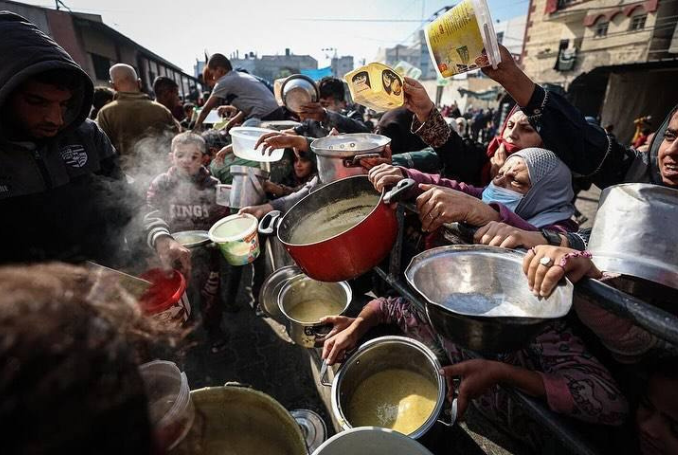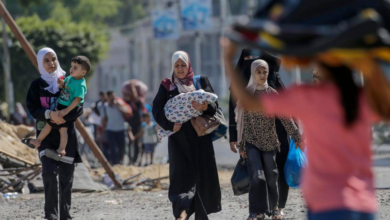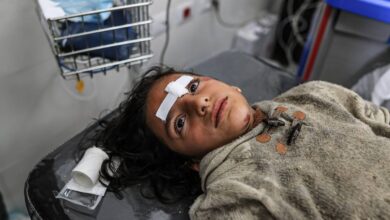
In the wake of Israel’s prolonged assault on Gaza, the region now faces a daunting prospect: an imminent man-made famine. Three months into the conflict, the Palestinian health ministry reports a devastating toll, with over 22,500 people killed, over 7,000 individuals unaccounted for, and an additional 55,000 wounded.
Survivors, grappling with the aftermath of bombings, repeated displacement, and disease outbreaks, now confront yet another looming catastrophe: famine.
A recent report from the Integrated Food Security Phase Classification (IPC) initiative, backed by the United Nations, sounded the alarm, cautioning that Gaza could plunge into famine if the current food crisis persists. The report expressed particular concern about the heightened nutritional vulnerability of children, pregnant and breastfeeding women, and the elderly.
Even before the latest conflict, over 60 percent of Gaza’s residents relied on food aid, with approximately 500 aid trucks arriving daily to meet their needs. However, the past 90 days have witnessed increased restrictions on food supplies, leaving thousands grappling with severe hunger and starvation.
The World Health Organization (WHO) Emergency Medical Teams entered northern Gaza on December 23, underscoring the “risk of famine.” Aid workers on the ground encountered people on the brink of hunger.
To declare a famine, aid agencies typically look for indicators such as at least 20 percent of households facing an extreme lack of food, 30 percent of children suffering from acute malnutrition, and two deaths per 10,000 people daily due to outright starvation or the combination of malnutrition and disease.
Omar Shakir, Israel and Palestine director at Human Rights Watch (HRW), condemned Israel’s actions, alleging a deliberate policy to deprive Gaza’s population of food and water, which he considers a war crime. The intentional creation of food insecurity and using starvation as a weapon of war was declared a war crime by the UN Security Council in 2018.
Governments and military groups have historically employed starvation as a warfare tactic. In a plea for intervention, Shakir urged world leaders to denounce this abhorrent war crime, which inflicts devastating effects on Gaza’s population.
Despite the condemnation, the practice continues, with the most recent instances occurring during parts of South Sudan’s civil war from 2013 to 2022. The UN declared a famine in 2017 that persists to this day.
As Gaza contends with the fallout from Israeli attacks damaging local infrastructure, including bakeries and food warehouses, the World Food Programme (WFP) reported that, until recently, only one of their 25 bakeries remained operational. On January 4, a fresh WFP delivery of essential supplies to nine bakeries has allowed them to reopen, offering subsidized bread parcels to the population.
While the toll of the Israeli aggression remains catastrophic, renewed efforts to provide essential food supplies offer a glimmer of hope for the beleaguered residents of Gaza.





